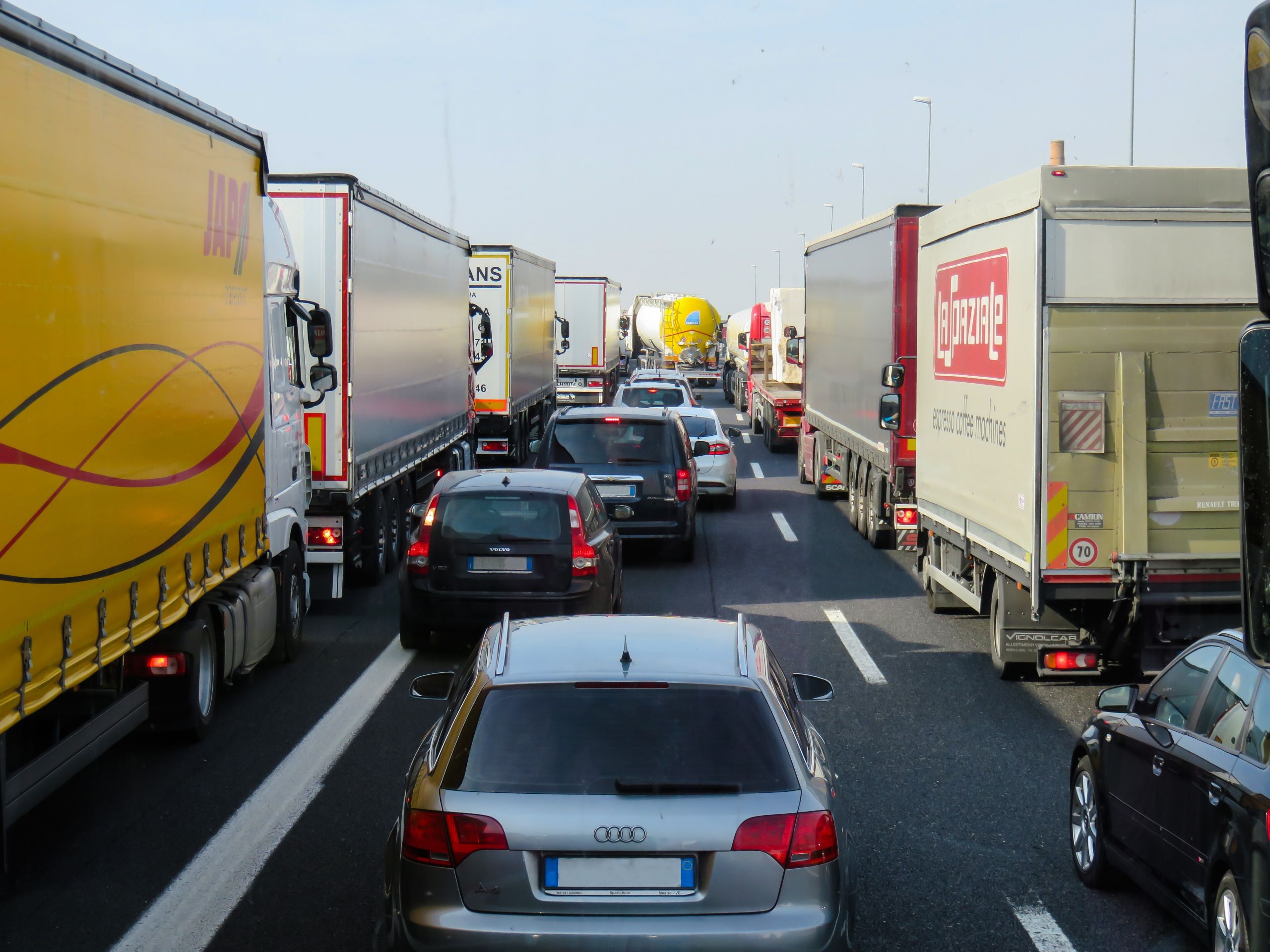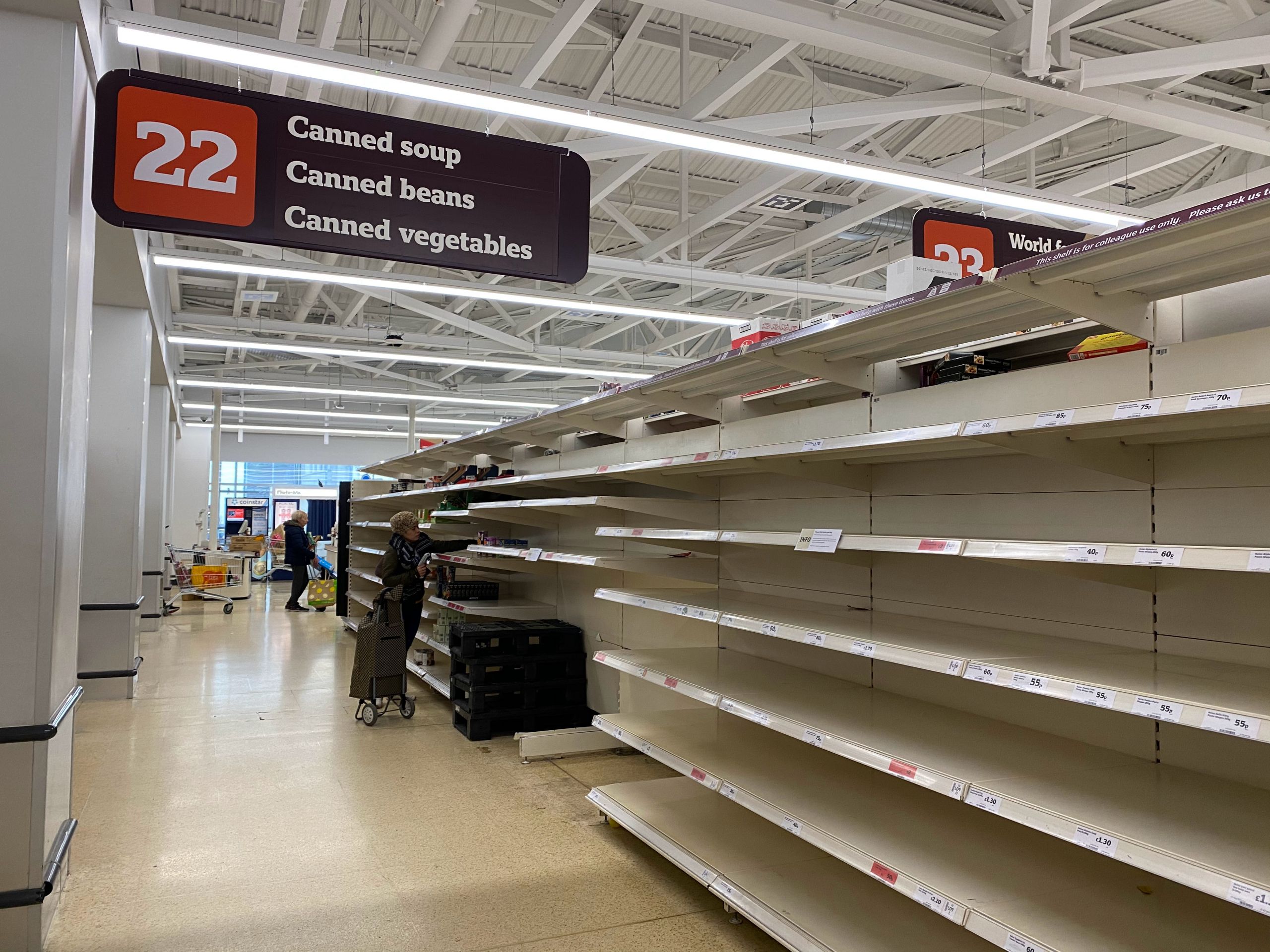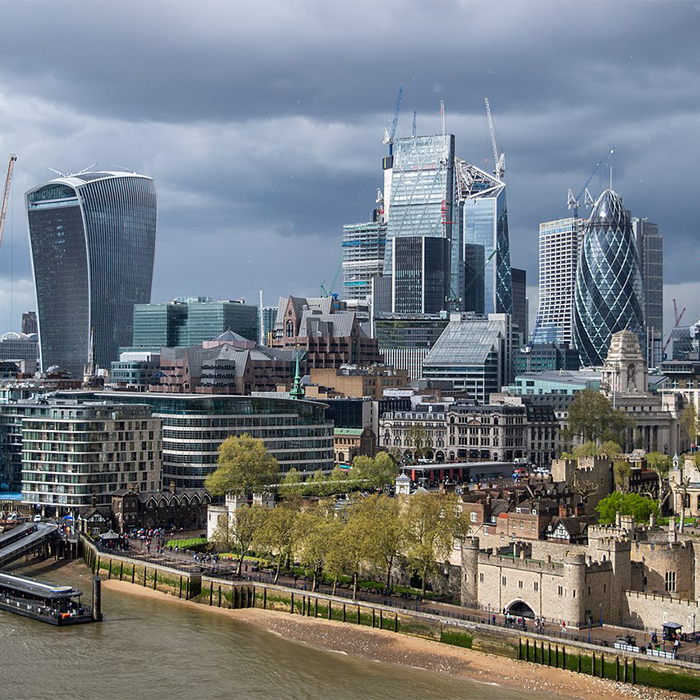TRADE AND ECONOMY
UK-EU TRADE RELATIONS AFTER BREXIT
THE BUSINESS PERSPECTIVE

“Many businesses see Brexit as a lose-lose situation because the EU Single Market is much smoother than any FTA can provide.”
Since the UK departure from the Single Market and Customs Union on December 31st 2020, many British businesses have been overwhelmed by the demand for more paperwork, customs requirements, delays, costs and restrictions, resulting in a decrease in trade between the UK and EU. Despite some recovery, businesses are still struggling to come to terms with the new regime and staff shortages, compounded by Covid difficulties.
Particularly badly hit are the food and drinks industry, especially dairy, meat and shellfish, as well as financial services, transport and storage, hospitality and culture. Reports have proliferated of shortages of food and products in the UK from the combined effects of Brexit and Covid.
Those in manufacturing including automobile and aerospace industries have experienced disruption to supply chains. The complexity of trading has resulted in some UK businesses moving operations to Europe, and European importers seeking other suppliers.
New Trading Arrangements
Since January 2021, EU trade agreements negotiated on behalf of the whole bloc ceased to apply to UK. The UK therefore agreed 35 ‘trade continuity agreements’ or ‘rollover deals’ that replicate pre-existing agreements with the EU and which cover some 63 countries. As of October 2021, the UK has also concluded four new trade agreements: with Japan, EU, Australia and New Zealand, and built on the rollover deal with Norway, Liechtenstein and Iceland. An FTA with the United States has been delayed, though the US remains a significant trading partner for Britain. The UK has also initiated efforts to join the Comprehensive and Progressive Agreement for Trans-Pacific Partnership (CPTPP).
In October 2021, the chairman of the Office for Budget Responsibility warned that the impact of Brexit on the UK economy will be worse in the long run compared to the Coronavirus pandemic. Forecasts showed that leaving EU would reduce the UK’s potential GDP by about 4% in the long term, with the pandemic reducing it by a further 2%. The cost of living could rise at its fastest rate for 30 years, and inflation could hit almost 5%.

In our Keeping Channels Open dialogues in early 2021, business representatives described the relief felt across the business world that a UK-EU free trade deal was agreed at the end of 2020, avoiding the deep damage of No Deal and “bringing legal certainty after some very turbulent months and years.”
However, though it was the most ambitious trade agreement that the EU has concluded to date, any free trade deal would not be as frictionless as full membership of the Single Market and Customs Union, since without mutual recognition of regulations and standards, barriers would be erected.
The deal was also seen as very thin, with much more still to be worked out.
“The UK went through a “sovereignty-first Brexit” and this was the UK Government’s priority throughout negotiations. So even with the Withdrawal Agreement and the Trade and Cooperation Agreement, in the end, it was really not ‘done’. These were just framework agreements with a lot more flesh to be put on those bones.”

Experts reported particular Brexit consequences for Small and Medium Enterprises (SME) which lacked the resources of bigger companies.
They had never traded outside the European Single Market before, so did not have experience with requirements for third countries such as customs declarations, VAT payments, rules of origin checks, hygiene checks for plant and animal products, etc.
Many trade associations had advised that the UK business should remain aligned in terms of regulations in all areas to minimise non-tariff barriers to trade and allow for the pre-Brexit status quo to remain in place as far as possible.
A Labour politician stressed that it was important for MPs to hear about SME problems in order to be a conduit back to Parliament and challenge Government to set up a proper process to resolve issues. Equally, there was also a need for advisers and networks to provide ongoing European representation on behalf of UK businesses struggling to come to terms with new requirements.
Participants highlighted many organisations and associations through which links can be developed, including trade networks such as the European Trade Union Confederation, the British and American Chambers of Commerce in EU and BusinessEurope.
Other ideas were more industrial and engineering apprenticeships, crafts and specialist skill-sharing and youth and educational exchanges, as well as networks between regions & cities.
“The UK is going to need all those relationships to be maintained and nurtured in order to have any sort of successful economy in the future.”
IMPACT ON FINANCIAL SERVICES

City of London
According to officials, the Brexit impact on financial institutions and centres like the City of London is severe. Much access has been lost due to Brexit, since services, which represent the lion’s share of the UK economy, were never part of the Free Trade Agreement. While the prospect of future UK-EU dialogue and MOUs on financial services was encouraging, this would not radically change the situation.
“Brexit is a huge shock, because when everything we do in financial services is regulated, you can’t talk to your customers cross-border any more, so all big London firms have set up entities in Europe. Professions like lawyers and accountants are also affected.”
“There’s no single financial centre in Europe that comes close to what the City of London can do for historical reasons. We have used the Single Market, especially passporting rights, to great success over the last 30 years and become even more dominant as a European financial centre.”
“We’re very realistic that some of the European business has now gone – but we’ll adapt. We will turn more to the rest of the world, also because the capital markets in future are probably going to be Asian.”
It was suggested that London would try to reorient itself and maintain its international position, as per its London Recharged vision. It would remain the access point for Europe to the international capital markets, especially Asian markets. The City of London would continue strong bilateral industry-base dialogues with five major European financial centres in Italy, France, Germany, Holland, Ireland and Luxembourg – deploying the Lord Mayor as an Ambassador for the financial and professional services sectors globally.
“We face the same challenges as European partners such as digitalisation in financial services. Sustainable finance is also an exciting focus of our dialogues with Milan, Dublin and Frankfurt both in terms of the products we plan to develop to encourage the transition into a green economy. We are also taking steps ourselves to decarbonise the City of London, so there’s a lot of positive things to discuss with our partners. COP 26 and UK Presidency of G7 also created opportunities.”


